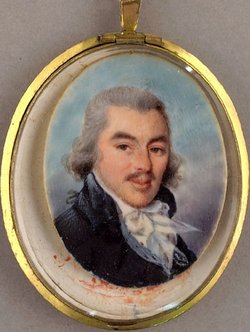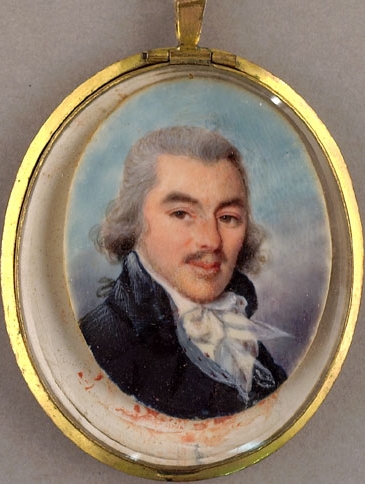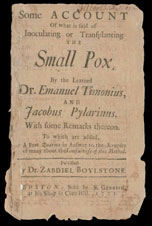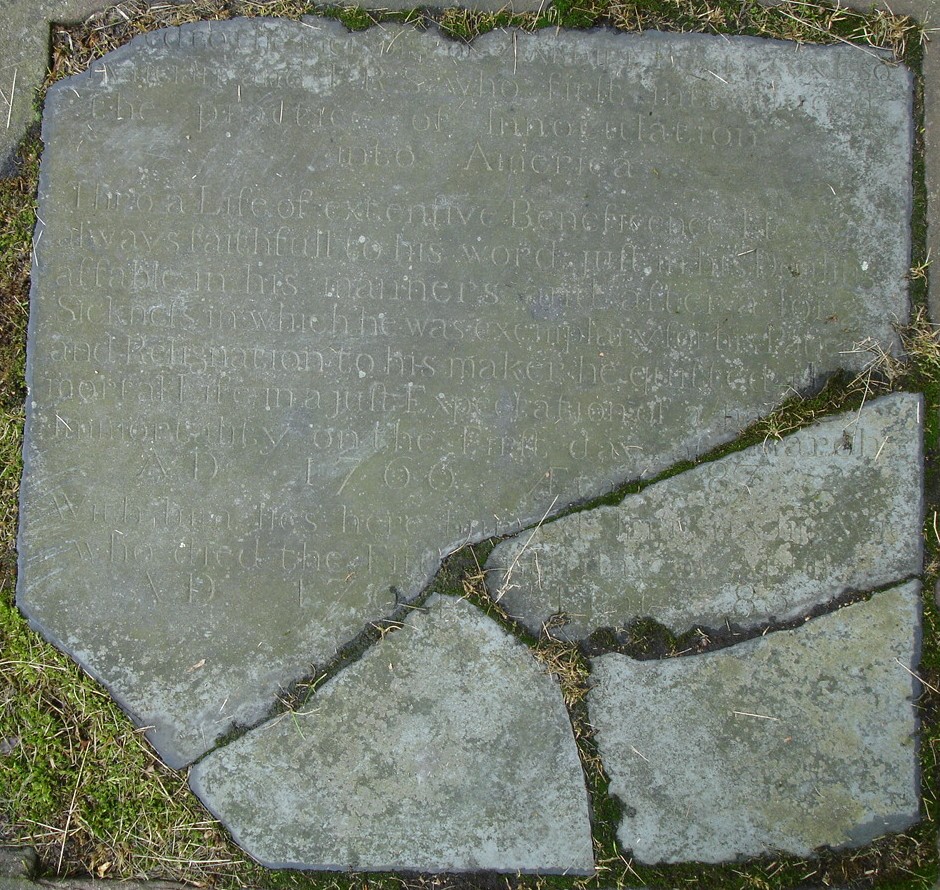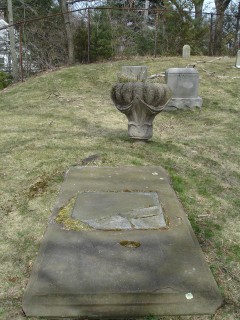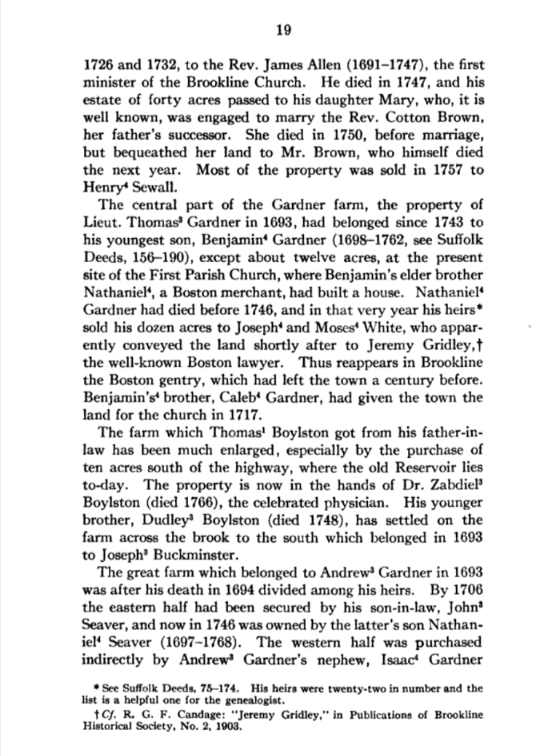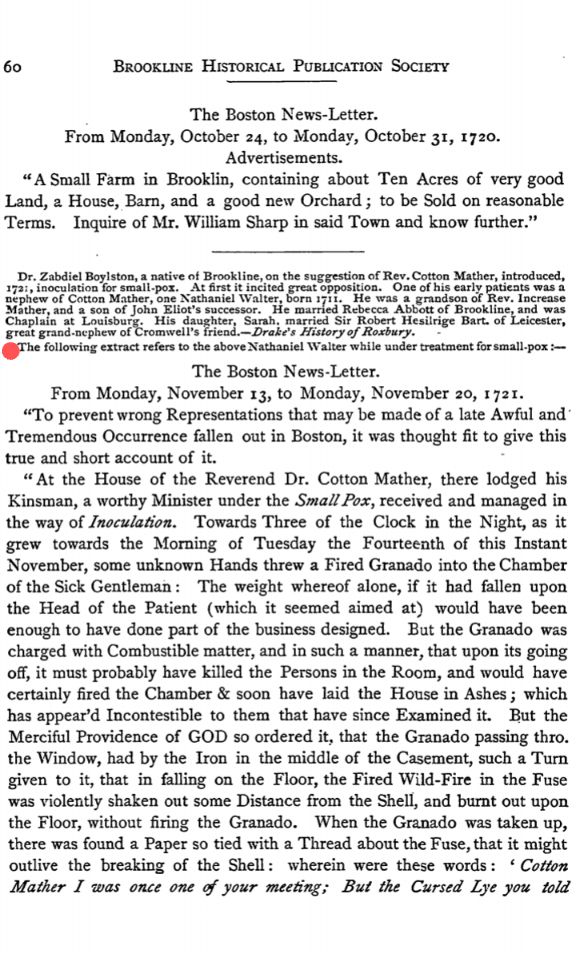- PubMed
He was also an enthusiastic naturalist. When small-pox raged in Boston, in 1721, Dr. Cotton Mather called to Dr. Boylston's attention the new way of checking the disease by inoculation. Dr. Boylston inquired into the method and made known to Boston doctors his intention of giving it a trial. The doctors publicly denounced it and declared it to be murder. Popular feeling was so aroused against him that the people threatened to hang him, and once a lighted hand grenade was thrown into the room where he was sitting with his family. He was obliged to conceal himself for two weeks, and even after the fury of the people had partially abated, the only way in which he could visit his patients was by going disguised and at night. He tried his theory on the members of his own household, and he was summoned before the town authorities. He urged the physicians who condemned him to visit his patients and judge from the results of his treatment, but they refused. He inoculated every one whom he could persuade to undergo the operation, and during the year personally treated two hundred and forty-seven cases, only six of which died. Of the patients who did not receive inoculation more than one in six died. In 1823 he went to London by invitation of the court physician, Sir Hans Sloane, and it is said that he inoculated the Princess Caroline, and afterwards other members of the royal family, but this is not certainly known. He remained in London for some years, and while there, by request of the Royal society, of which he had been made a fellow, he published an account of his practice of inoculation in America. He died at Brookline, Mass., March 1, 1766.
- PubMed
He was also an enthusiastic naturalist. When small-pox raged in Boston, in 1721, Dr. Cotton Mather called to Dr. Boylston's attention the new way of checking the disease by inoculation. Dr. Boylston inquired into the method and made known to Boston doctors his intention of giving it a trial. The doctors publicly denounced it and declared it to be murder. Popular feeling was so aroused against him that the people threatened to hang him, and once a lighted hand grenade was thrown into the room where he was sitting with his family. He was obliged to conceal himself for two weeks, and even after the fury of the people had partially abated, the only way in which he could visit his patients was by going disguised and at night. He tried his theory on the members of his own household, and he was summoned before the town authorities. He urged the physicians who condemned him to visit his patients and judge from the results of his treatment, but they refused. He inoculated every one whom he could persuade to undergo the operation, and during the year personally treated two hundred and forty-seven cases, only six of which died. Of the patients who did not receive inoculation more than one in six died. In 1823 he went to London by invitation of the court physician, Sir Hans Sloane, and it is said that he inoculated the Princess Caroline, and afterwards other members of the royal family, but this is not certainly known. He remained in London for some years, and while there, by request of the Royal society, of which he had been made a fellow, he published an account of his practice of inoculation in America. He died at Brookline, Mass., March 1, 1766.
Inscription
"Sacred to the Memory of Zabdiel Boylston Esq.
Physician and F.R.S. (Fellowship of Royal Society) who first introduced
the practice of Innoculation into America.
Thro' a life of extensive Beneficience, He was always faithful to his word,
just in his Dealings, affable in his manners, and after a long Sickness
in which he was exemplary for his Patience and Resignation
to his Maker he quitted this mortal Life, in a just expectation of
a happy Immortality on the first day of March AD 1766, AEtat. 87.
With him lies buried Jerusha his wife, who died the fifteenth day of April. AD 1764 AEtat. 85.
Family Members
Advertisement
Advertisement
